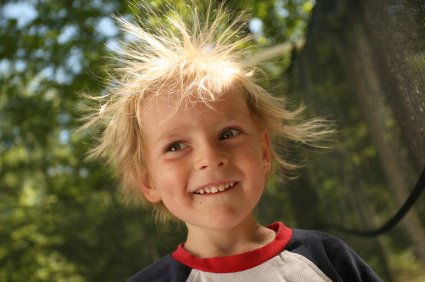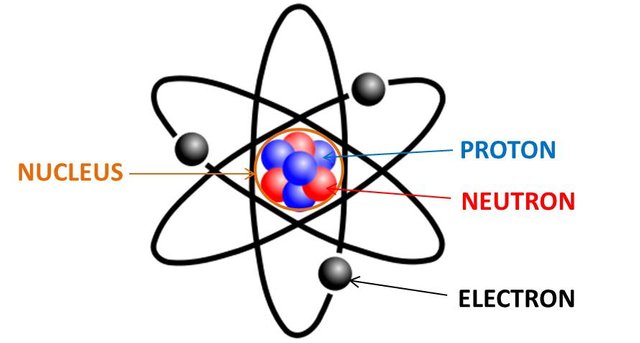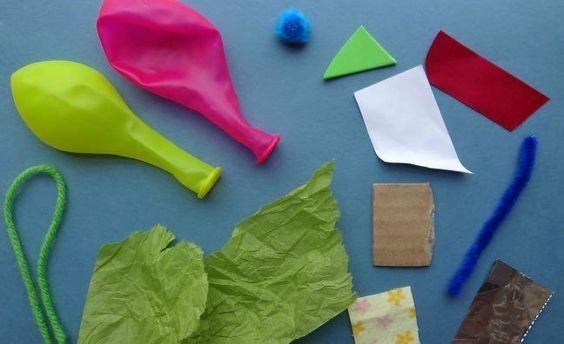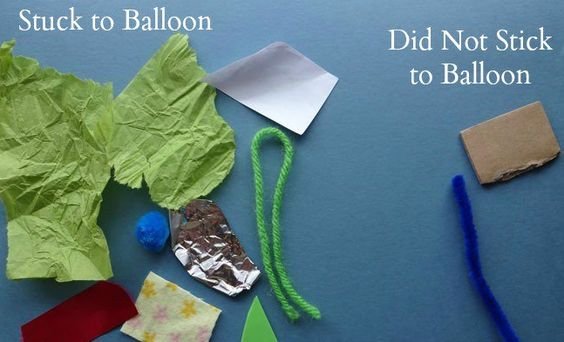Have Fun With Static Electricity (Balloon Experiment)
Here's your chance to spark your students' curiosity about static electricity and how it works! This experiment is fun, informative and affordable too! I will keep the guidelines and explanations simple, so that the activity can be done by younger kids as well as by students who might already be in their teens (you can always add to the lesson plan to make it more challenging). In actual fact, this experiment and lesson plan is quite awesome in that it is very adaptable and that you can take and add to it very easily.
Did you know?
Static electricity is the build-up of an electrical charge on the surface of an object. The reason that it’s actually called static electricity is because the charges stay in one area for some time and don’t flow or move to a different area. Makes sense doesn’t it. - www.coolkidfacts.com

THE EXPERIMENT
Words You Need To Know
Before we get to the "hair-raising" experiment, the activity might be a bit more effective if the following terminology is mentioned:
- Atoms - Atoms are the smallest particles (building blocks) of ordinary matter. They are made up of 3 even tinier subatomic particles called protons, electrons and neurons.
- Protons - These are particles within the nucleus of an atom, they have a positive charge.
- Electrons - They surround the nucleus of an atom and have a positive charge.
- Neutrons - Neutrons are also found in the nucleus of an atom, but have zero charge.

Preparing for your experiment - you will need:
- Balloons
- Blanket or a sweater
- Pieces of: tissue, tinfoil, cardboard, paper, string, ribbon, foam, cloth, pom pom
- Pen and paper to make notes

Instructions:
Lay out the pieces of materials you have collected. Blow up your balloons. Take one balloon and touch your materials with it, you will notice that nothing happens, the items are not attracted to the balloon. Now rub the balloon vigorously against your blanket sweater or even your hair. When you rub the balloon like this you are causing friction which allows the balloon to collect more electrons and thus become negatively charged. Touch each of your items laid out once again and use your pen and paper to make note of what happens next.
- Some of the objects, like the tissue paper, stuck to the balloon immediately. This is because the negative electrons in the balloon attracted the positive protons in the tissue paper etc. Like in this video:
- Some objects will be picked up slightly, or will be picked up only to be dropped very quickly. This means the charge was transferred very quickly, or the object was too heavy to rise.

So here's the gist of it:
The electrons are the star of the show really. They are the only particles that can move from one atom to another, since the are not contained in the atom nucleus. Since they move from atom to atom, this also means that they can move from object to object. When there are more electrons than protons, the object will have a negative charge and will then move to an object with a lower charge or with less electrons.
Often you can hear a pop when the electrons move and even see a spark. You can also feel the shock when the charge is neutralized.
I hope you have plans to try out this simply electrifying experiment! This is perfect to try out on rainy days, or even when there is a thunderstorm, since lightening is a result of static electricity too, in case you didn't know!
Looking for more fun experiments? Try out:
 Team South Africa banner designed by @bearone
Team South Africa banner designed by @bearone
Thanks for the positive feedback and upvote!
Congratulations!!
To receive upvotes from me on all your posts, please consider delegating SP to me as per this post.